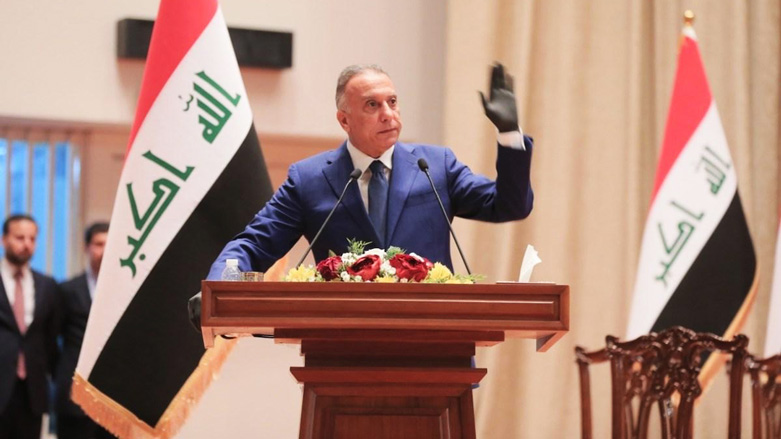Iraqi Prime Minister to visit Washington

WASHINGTON DC (Kurdistan 24) – Iraqi Prime Minister Mustafa al-Kadhimi will arrive in Washington shortly to meet with President Donald Trump, who “will welcome” him “to the White House on August 20,” the White House Press Secretary announced late on Friday.
Kadhimi took office on May 7, after the resignation of Adil Abdul Mahdi, following months-long protests in Iraq against government corruption and a lack of basic services.
After Kadhimi became prime minister, Washington initiated a “strategic dialogue” with Baghdad to review all aspects of ties between the US and Iraq and move beyond a relationship focused narrowly on fighting ISIS, which, in the US view, has been largely defeated.
Thus, the White House statement explained “as close partners,” the two countries “will look to expand our relations across a range of issues, including security, energy, health care, and economic cooperation.”
Among the multiple challenges that Kadhimi faces is the coronavirus pandemic. Last week, Iraq became the Arab majority country with the most infections and most deaths from the virus.
Read More: COVID-19: Iraq records 3,325 new cases and 74 deaths, extends partial curfew
This will be the first meeting between the two leaders and Trump’s second meeting with an Iraqi prime minister. In March 2017, former Prime Minister Haider al-Abadi visited Washington and met with the US president.
Fuad Hussein was then chief of staff to the Kurdistan Region Presidency. He was a member of the Iraqi delegation and among those who saw Trump then. Hussein is now Iraqi Foreign Minister, and, almost certainly, he will accompany Kadhimi to the White House and see Trump again.

The first session of the US-Iraq strategic dialogue was held in June, by teleconference, because of the coronavirus pandemic. It was initially thought that the second session would be in July, but it has turned out to be August.
Read More: US-Iraq strategic dialogue to resume this summer
Following the first session of the strategic dialogues, Assistant Secretary of State for Near Eastern Affairs, David Schenker, explained, “What we want is to have a strong, normal bilateral security arrangement with Iraq, characterized by training, provision of high-quality weapon systems, joint exercises, and senior officers studying at our respective military academies.”
In addition, as Schenker stated, Washington wants to see the new government establish control over “rogue” Iranian-backed militias and establish “a unified security service,” goals that he said Kadhimi shares.
Indeed, in a recent webinar to mark the sixth anniversary of the Yezidi genocide, Joey Hood, Principal Deputy Assistant Secretary of State for Near Eastern Affairs, identified the presence of Shi’ite militias in Yezidi areas that have been liberated from ISIS as the main obstacle to the return to their homes of many Yezidis, who still live in displaced persons camps.
Read More: US: Militias need to leave Yezidi areas
The new Iraqi government has pledged to enact political and economic reforms, particularly against corruption, and prepare for new elections, and the US has committed to assisting it in those tasks.
George W. Bush’s successor, Barack Obama, as a senator, had opposed the 2003 Iraq war, As president, Obama ended the US presence in Iraq in 2011. However, three years later, as ISIS burst onto the scene, Obama was obliged to send American forces back into the country.
Obama’s decision to largely curtail the US relationship with Iraq is now widely regarded in Washington to have been a mistake, and the Trump administration appears resolved not to repeat it.
Editing by John J. Catherine
